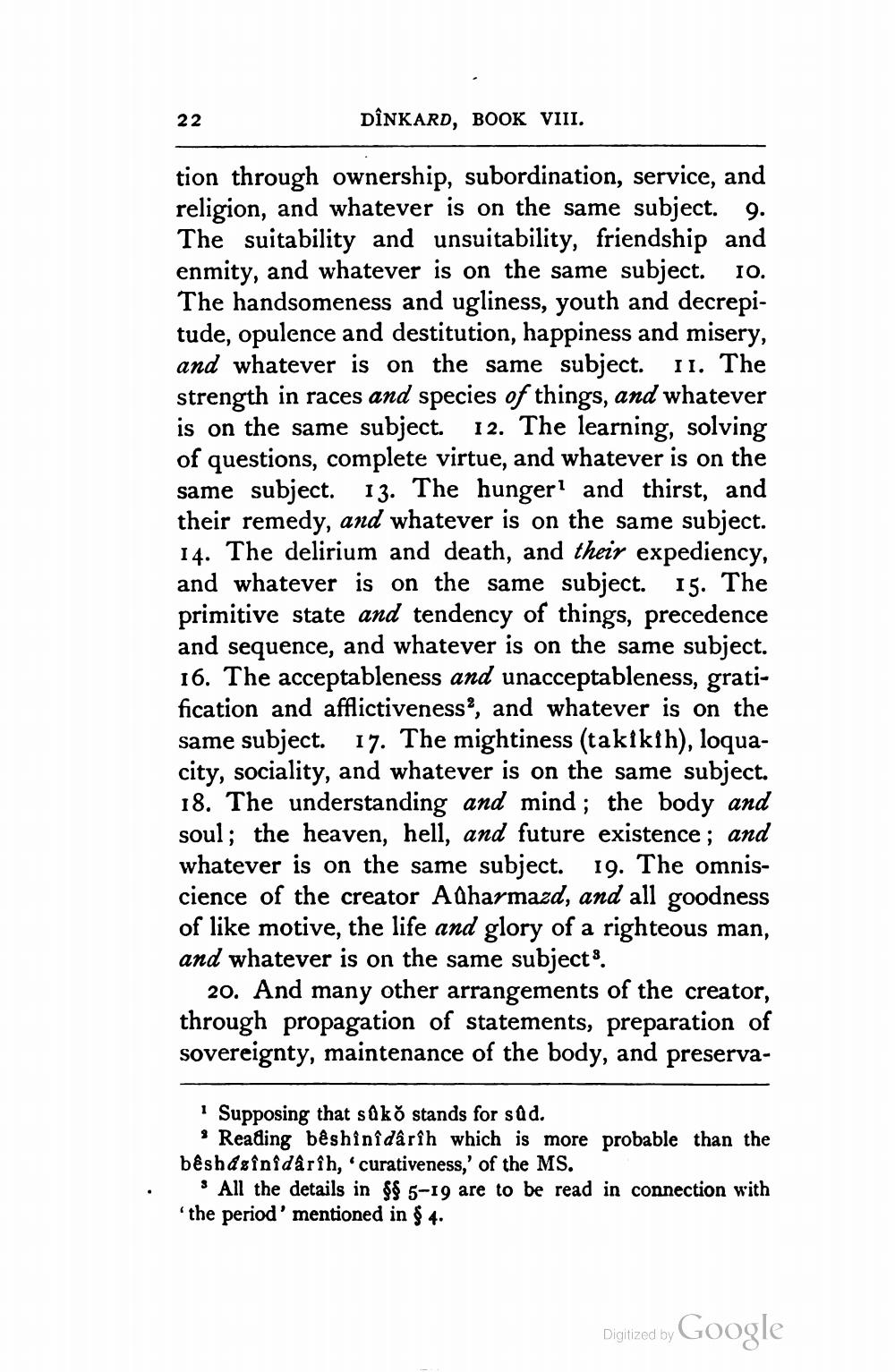________________
22
DÎNKARD, BOOK VIII.
tion through ownership, subordination, service, and religion, and whatever is on the same subject. 9. The suitability and unsuitability, friendship and enmity, and whatever is on the same subject. 10. The handsomeness and ugliness, youth and decrepitude, opulence and destitution, happiness and misery, and whatever is on the same subject. II. The strength in races and species of things, and whatever is on the same subject. 12. The learning, solving of questions, complete virtue, and whatever is on the same subject. 13. The hunger and thirst, and their remedy, and whatever is on the same subject. 14. The delirium and death, and their expediency, and whatever is on the same subject. 15. The primitive state and tendency of things, precedence and sequence, and whatever is on the same subject. 16. The acceptableness and unacceptableness, gratification and afflictiveness, and whatever is on the same subject. 17. The mightiness (takikih), loquacity, sociality, and whatever is on the same subject. 18. The understanding and mind; the body and soul; the heaven, hell, and future existence; and whatever is on the same subject. 19. The omniscience of the creator Adharmazd, and all goodness of like motive, the life and glory of a righteous man, and whatever is on the same subject 8.
20. And many other arrangements of the creator, through propagation of statements, preparation of sovereignty, maintenance of the body, and preserva
I Supposing that sûko stands for sad.
* Reading bêshinidarih which is more probable than the bêshdxînidârih, curativeness,' of the MS.
* All the details in $85-19 are to be read in connection with 'the period' mentioned in $ 4.
Digitized by Google




